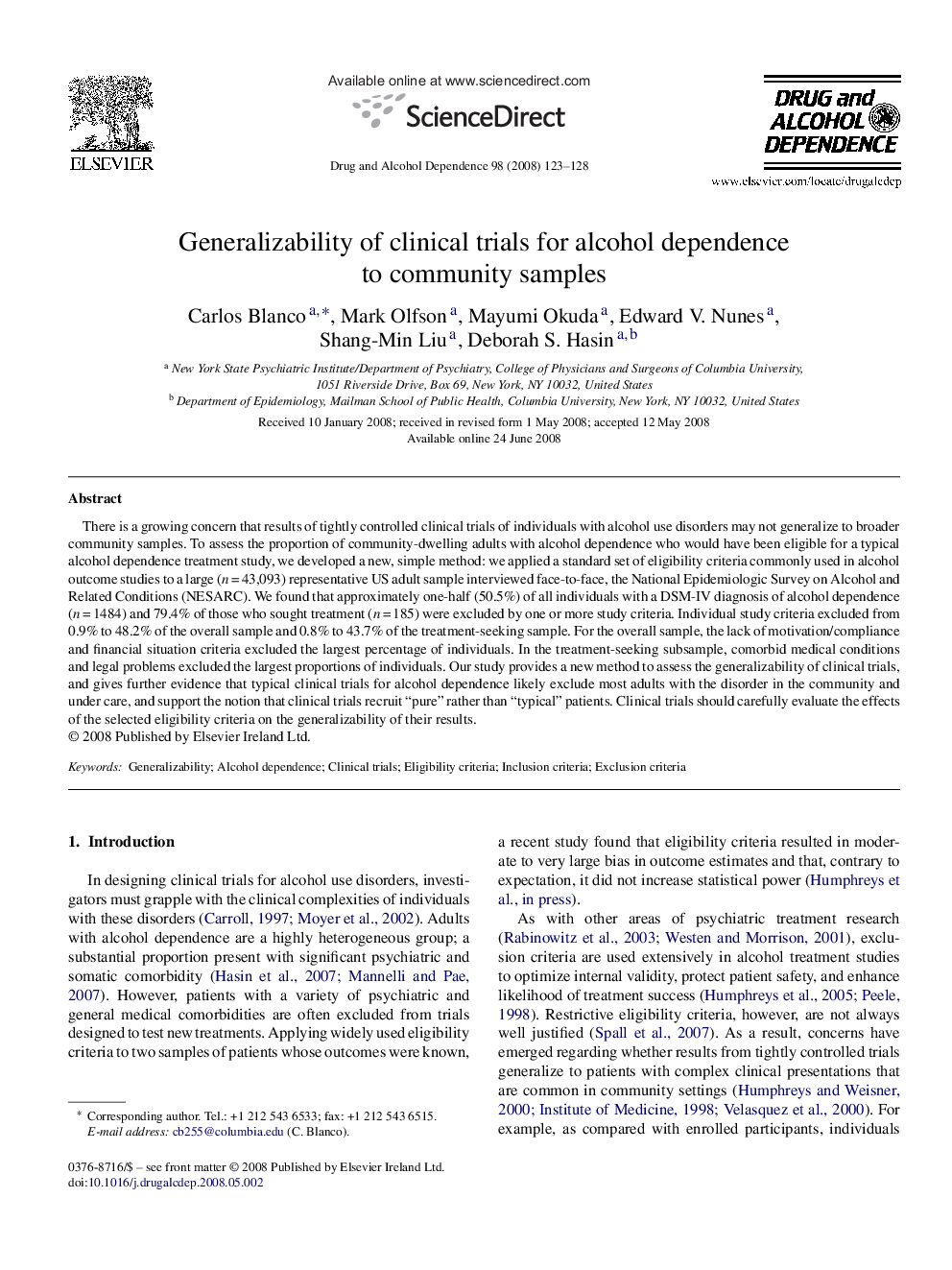| Article ID | Journal | Published Year | Pages | File Type |
|---|---|---|---|---|
| 1071030 | Drug and Alcohol Dependence | 2008 | 6 Pages |
There is a growing concern that results of tightly controlled clinical trials of individuals with alcohol use disorders may not generalize to broader community samples. To assess the proportion of community-dwelling adults with alcohol dependence who would have been eligible for a typical alcohol dependence treatment study, we developed a new, simple method: we applied a standard set of eligibility criteria commonly used in alcohol outcome studies to a large (n = 43,093) representative US adult sample interviewed face-to-face, the National Epidemiologic Survey on Alcohol and Related Conditions (NESARC). We found that approximately one-half (50.5%) of all individuals with a DSM-IV diagnosis of alcohol dependence (n = 1484) and 79.4% of those who sought treatment (n = 185) were excluded by one or more study criteria. Individual study criteria excluded from 0.9% to 48.2% of the overall sample and 0.8% to 43.7% of the treatment-seeking sample. For the overall sample, the lack of motivation/compliance and financial situation criteria excluded the largest percentage of individuals. In the treatment-seeking subsample, comorbid medical conditions and legal problems excluded the largest proportions of individuals. Our study provides a new method to assess the generalizability of clinical trials, and gives further evidence that typical clinical trials for alcohol dependence likely exclude most adults with the disorder in the community and under care, and support the notion that clinical trials recruit “pure” rather than “typical” patients. Clinical trials should carefully evaluate the effects of the selected eligibility criteria on the generalizability of their results.
